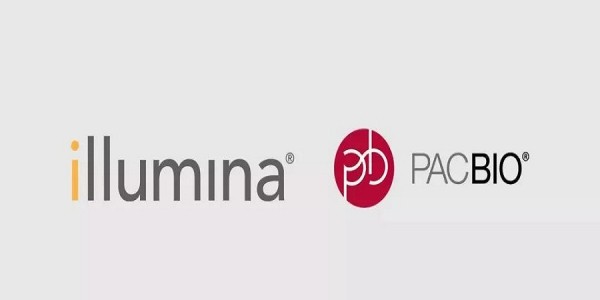



NEW YORK (GenomeWeb) ¨C Illumina plans to acquire Pacific Biosciences for approximately $1.2 billion in cash, the companies said on Thursday.
Under the agreement, which has been approved by both companies' boards of directors, Illumina will pay $8.00 per PacBio share, representing a 71 percent premium over PacBio's 30 trading-day volume weighted average share price as of the market close on Oct. 31, and a total value of about $1.2 billion on a fully diluted basis.
Illumina said that PacBio's long-read sequencing technology will complement its own short-read sequencing platforms and will allow it to provide integrated workflows and innovations that bring together the best of both technologies.
During a conference call with investors after the close of the market on Thursday, Illumina CEO and President Francis deSouza touted PacBio's accuracy, technology roadmap, and potential clinical applications as key to why the company wanted to acquire it.
In addition, deSouza said the acquisition would broaden Illumina's market into areas such as de novo assembly of plant and animal genomes, functional genomics, tissue transplantation, and pharmacogenomics ¡ª applications that he said require "uniform, unbiased coverage in highly repetitive regions, which long reads are best suited to provide."
DeSouza added that the long-read sequencing market had a size of around $600 million in 2017 and is expected to grow to $2.5 billion in 2022.
PacBio CEO Mike Hunkapiller said during the call that the acquisition would not affect PacBio's near-term plans to launch its new chip to early-access users in the first quarter and more broadly in the second quarter of 2019.
DeSouza noted that the planned new chip, which promises to double the throughput of PacBio's Sequel instrument, was one of the key reasons, along with PacBio's recent chemistry improvements, for the timing of the acquisition.
"There are a number of segments in the clinical market where there is value in long-read technology," deSouza said, particularly in the areas of rare and undiagnosed diseases for identifying structural variants, in transplantation applications that require sequencing through the HLA region, and in pharmacogenomics. He added that the company plans to "explore regulatory clearances for PacBio's products in multiple geographies."
In terms of integrating the two technologies, deSouza said the initial focus will be on bioinformatics to enable Illumina and PacBio sequencing data to be analyzed together. "Today, customers have to manually stitch that together," deSouza said, but in the future, the firm plans to develop tools that would enable that automatically.
He did not comment further on the possibility of a sequencing system that would combine the technologies but said that he was "excited to imagine a benchtop version" of a PacBio instrument.
It remains to be seen what impact the acquisition will have on Oxford Nanopore Technologies, the other long-read sequencing technology company, which was not mentioned by name during the call. Oxford Nanopore did not provide a comment as of press time.
Illumina previously invested $18 million in Oxford Nanopore with the intent of marketing and selling a technology known as exonuclease nanopore sequencing that Oxford Nanopore was developing at the time. However, Oxford Nanopore was simultaneously developing another nanopore technology, known as strand sequencing, which is the basis of its current products, and the companies had a falling-out over the terms of the commercialization agreement and officially cut ties in 2013.
Since then, Illumina has licensed nanopore-related intellectual property from the University of Washington's Jens Gundlach, who demonstrated the use of Mycobacterium smegmatis porinA, MspA, for sequencing. A lawsuit between the companies ensued in 2016, when Illumina alleged that Oxford Nanopore had used the MspA pore in its MinIon instrument. The companies settled that suit several months later after Oxford Nanopore said it was releasing a new nanopore.
Illumina has also said in the past that it was developing its own nanopore sequencing technology in house and it has invested in other technologies, including the synthetic long-read technology originally developed by startup Moleculo that generates long reads from short ones.
PacBio, too, holds IP around nanopore sequencing and sued Oxford Nanopore in 2017. Specifically, PacBio's patent is related to the enzyme that controls DNA translocation through the pore.
Although DeSouza did not provide details about Illumina's internal development of long-read sequencing technology, he mentioned that the acquisition would bring in PacBio's expertise in single-molecule sequencing chemistries, including nanopore technology.
The acquisition is subject to approval by PacBio shareholders as well as other customary closing conditions and regulatory approvals. Illumina expects the deal to close in mid-2019.
In an investor note following the conference call, Doug Schenkel, an analyst with Cowen, wrote that one reason for the deal not closing until mid-2019 could be that there is "some anti-trust risk." Although Illumina and PacBio's technologies currently serve different markets, a successful launch of PacBio's new chip "would be more competitive than PacBio has ever been with Illumina," Schenkel wrote.
Puneet Souda, an analyst with Leerink, however, disagreed, writing that the two technologies are complementary and do not overlap in applications. The acquisition "should pass the regulatory bar and is unlikely to raise any antitrust concerns," he wrote in a note to investors.
Goldman Sachs is serving as financial advisor and Covington & Burling as legal advisor to Illumina. PacBio has Centerview Partners as its financial advisor and Wilson Sonsini Goodrich & Rosati as its legal advisor.
In morning trading on the Nasdaq, PacBio's shares were up 68 percent at $7.59, while Illumina's shares were up 2 percent at $318.99.